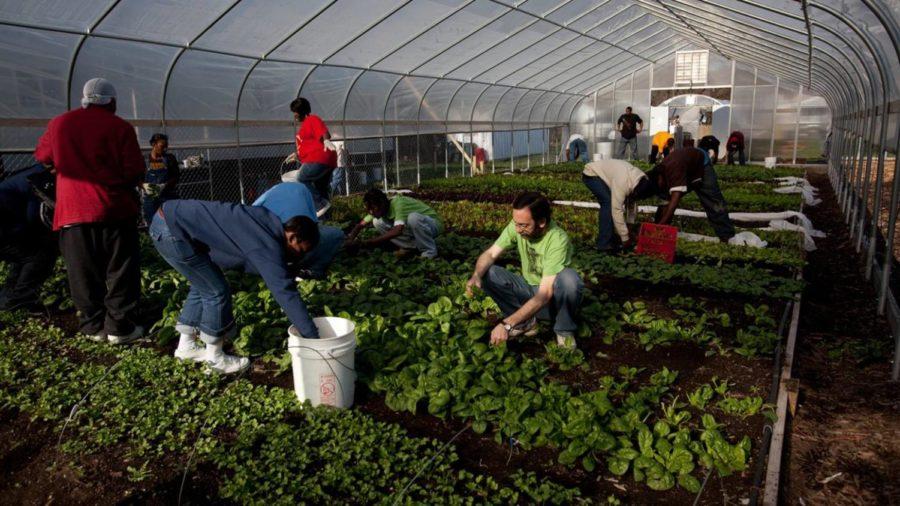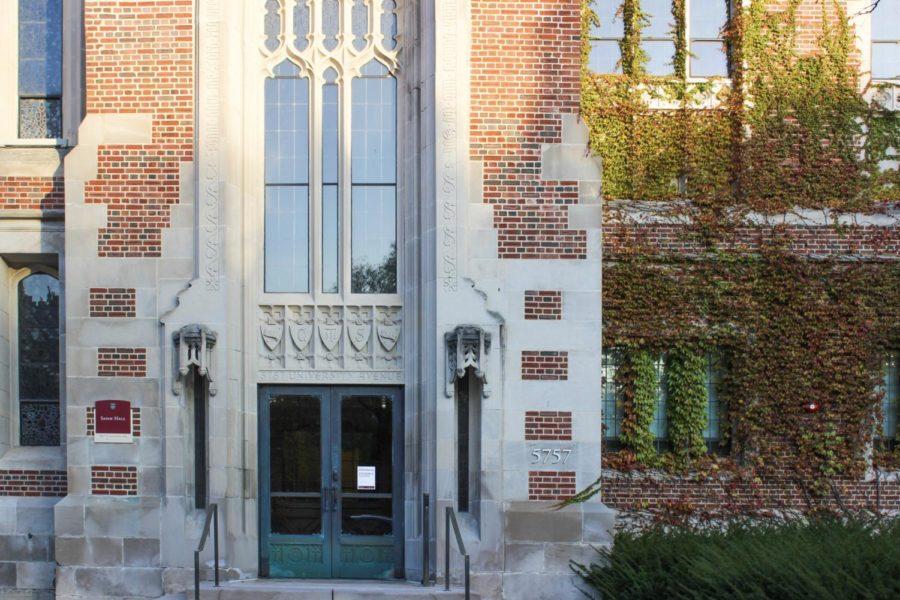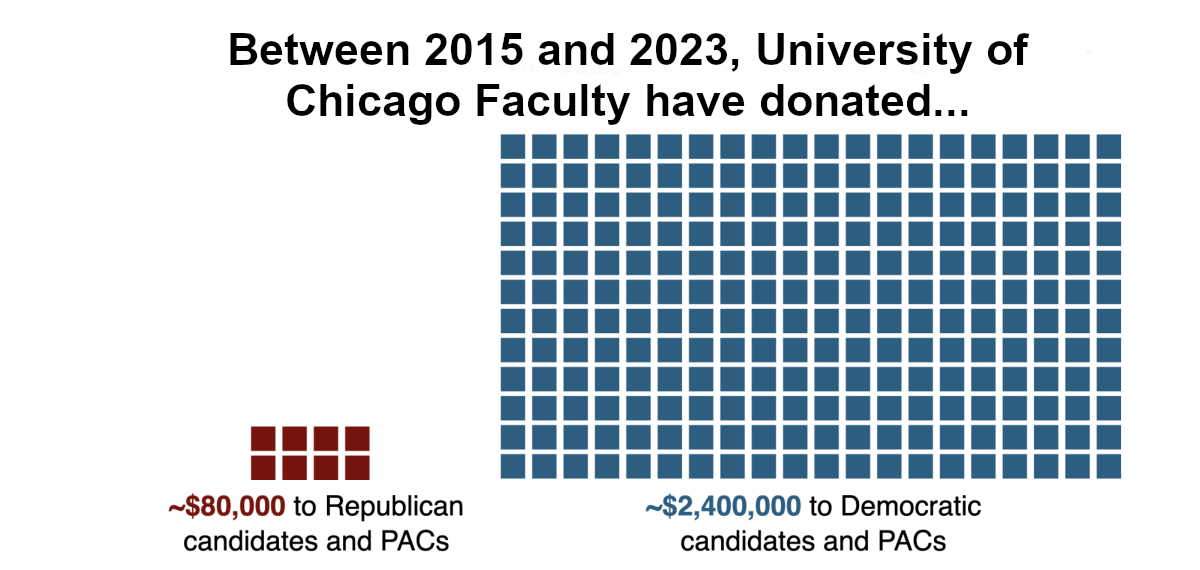Sitting at the head of a long table dominating the small Student Government (SG) office, third-year Kimika Padilla answered questions about environmental policy with expertise and discretion, befitting her position as chair of SG’s Committee on Campus Sustainability. Although she applauded many of the University’s sustainability measures, Padilla, an environmental activist and third-year environmental and urban studies major, related a degree of dissatisfaction.
“In many ways we are moving in the right direction,” she said, “but certainly not fast enough.”
Second-year Perrin Davidson, an activist and president of the Environmental Research Group, told The Maroon a similar story. He spoke highly of the University’s on-campus goals and the research it supports, but insisted that it was important to go further.
The next step, he said, was to take the “momentum that has already been gained and using that and going forward.”
The groundbreaking 2018 report published by the Intergovernmental Panel on Climate Change (IPCC) projected dire climatic consequences by 2100 if anthropogenic effects are not rapidly curbed. Well-aware of the poor landing record of such prophecies, the report’s authors summarized four of the possible model pathways the world could take in reaction. The four paths (P1–P4) which the report detail all eventually mitigate greenhouse emissions and keep warming close to 1.5 degrees Celsius, but the route they take—how much work is left to future generations, how much destructive temperature overshoot slips through—varies. Perhaps, as in the IPCC’s P1, the world will throw itself into action, invent new technologies and implement old ones, move decisively and minimize the damage. Perhaps it will follow P2: improve, not explosively, but improve little by little nonetheless. Perhaps the world will act like it has always acted, glancing at warnings and continuing on its stumbling way down P3. Or perhaps the last path, P4, will be the reality; science will go largely unheeded, and sustainability will not rise above the clamor of other concerns until it is almost too late.
The University of Chicago has walked a fine line with respect to climate change. For years, it has made a policy of not speaking out or advocating organized action to address anthropogenic climate effects. This silence, however, has not been coupled with inaction. Activists often find their calls for the University to step into a role of global advocacy frustrated, but the University’s on-campus initiatives indicate some commitment to internal improvement.
Consider the years preceding 2015, when a wave of campus-wide activism pushed for the University of Chicago to divest its endowment, valued at $7.9 billion as of 2018, from fossil fuel businesses. President Robert J. Zimmer responded with an invocation of the Kalven report, a move that froze over most on-campus fossil fuel divestment activism.
The story of the University’s unique relationship with sustainability begins during the Vietnam War. In 1967, as a response to years of student activism, the University President George W. Beadle convened a council. The product of that council—the Kalven Report—has since guided administrative decision making to this day. It concludes that the University’s role as a bastion of intellectual diversity prohibits political action except in the most extraordinary of circumstances. This principle, with all its space for fiat on what is political and what is extraordinary—in other words, case-by-case decisions of what constitutes “paramount value” to the University—has served as a perennial justification for the administration and as a complicating factor in activism projects involving the administration.
The Kalven Report and the institutional values it represents so thoroughly quashed the most recent environmental divestment movement that even some of the University of Chicago community’s most vocal sustainability leaders have made a tactical retreat from divestment, choosing instead to focus on areas where the University is more receptive.
Padilla told The Maroon, “Honestly, I’m not super interested in [divestment]. I think that it is a relevant topic that should be explored, but it’s not a priority. I think that there are other, really tangible things that the University could be doing on campus to demonstrate and tangibly improve sustainability.”
Professor Benjamin Morgan, who teaches a literature class with a focus on climate and is involved with sustainability activism, expressed to The Maroon his dissatisfaction with this state of affairs.
“The fact that carbon emissions are causing global warming,” he said, “is not a ‘viewpoint’ as described in the Kalven Report. I would think that the University can take actions to mitigate climate change, including divesting from fossil fuels, without coming into conflict with the report’s injunction against ‘expressing opinions on the political and social issues of the day.’”
Morgan reiterated his support of divestment, stating that “In 2016 I signed a letter stating, in part that ‘because of the universal and existential nature of the threat climate change poses, we are not only compliant with but compelled by the Kalven Report to take action.’ I still hold that view.”
Such arguments have done little to sway University decision-making. In the same interview with The Maroon, after first citing the Kalven Report in relation to fossil fuels divestment, Zimmer noted that he had already heard a contention similar to Morgan’s, and had already rejected it.
“I appreciate and admire that people went through the effort of making those arguments, and just because you make an argument doesn’t mean people accept it,” he said.
The University of Chicago has shown an intractable commitment to avoid tying itself to major national or international pushes for sustainability. At the same time, however, it has been incrementally working toward environmental responsibility within its own campus borders. Unlike the 348 universities which signed the “We Are Still In” declaration to “not retreat from the global pact to reduce emissions and stem the causes of climate change,” the University of Chicago has kept mostly quiet on the issue of the climate. The same statement which demurred from explicitly supporting global initiatives points to the University’s own on-campus sustainability initiatives.
In a June 8, 2017 statement published amid an international movement for universities and other institutions to reaffirm commitment to the Paris Agreement’s terms in the wake of the United States’ proposed withdrawal, the University of Chicago touted climate research occurring under its auspices, and acknowledged that “this awareness is instantiated in widespread participation in the Paris accords.”
The University published its “Sustainability Plan” in November of 2016, detailing nine areas of sustainable action on which the University of Chicago claims to be progressing: reducing campus greenhouse gas emissions, constructing new buildings with sustainability in mind, improving transportation, reducing waste, using local food, maintaining green space on campus, conserving water, considering the impact of goods and services in the University supply chain, and building awareness. The 2016 plan provides goals and “next steps” in each of the nine areas, as well as data for each area.
A 2016 UChicago News article by Greg Borzo announced the release of the plan, noting that “the office plans to publish annual updates to the baseline report.” However, the sustainability plan linked to on the index page of the University of Chicago sustainability website remains the version initially published more than two years ago. The site contains two additional reports published in 2017 and 2018, although both are far more technical and focus exclusively on greenhouse gas reduction. The University did not respond to an inquiry asking whether these two reports were intended to constitute the updates to the sustainability plan.
The 2016 plan sets a goal of reducing greenhouse gas emissions by 20 percent before 2025, compared to a baseline composited of 2012 to 2015. The 2018 report on greenhouse gases indicated that the University had reached six percent reduction as of 2017. Davidson told The Maroon that he thought the greenhouse gas reduction goal was “somewhat lofty.” Padilla, on the other hand, said that she saw “room in some cases to make [the University’s goals] more ambitious. But,” she noted, “it is really hard to tell how much progress has been made on those goals because of lack of transparency.”
Differences in baseline years and target years, among other reporting metrics, make it difficult to compare the University of Chicago’s progress to the IPCC report or similar international goals. Additionally, the emission structures and goals of a University versus a nation are starkly different. The IPCC’s optimistic but recommended path calls for emission reductions of more than 50 percent between 2010 and 2030 levels. P3, which the IPCC characterizes as a “middle-of-the-road scenario,” shows a reduction of more than 35 percent from 2010 to 2030. The University’s current commitment is most in line with increase in temperature just below two degrees Celsius, which the IPPC matches to a scenario in which “emissions are projected to decline by about 25% by 2030.”
The half of a degree difference between a 2 and 1.5 degrees Celsius increase is a crucial one. “Future climate-related risks,” it concludes, “depend on the rate, peak and duration of warming. In the aggregate, they are larger if global warming exceeds 1.5 °C before returning to that level by 2100 than if global warming gradually stabilizes at 1.5 °C, especially if the peak temperature is high (e.g., about 2 °C).”
In separate interviews with The Maroon, student sustainability leaders Padilla and Davidson emphasized that they recognized and respected the University’s efforts, but neither was entirely satisfied with what has been accomplished so far.
“As a student on campus, and as an environmental leader on campus,” Padilla said, “there is always this dual role I want to play of recognizing what the University is already doing and also of pushing the envelope on what more can be done.”
Davidson echoed this sentiment, and elaborated on why he feels that it is important for student activists to be understanding of the University’s pace of progress. He pointed out that students “are sprinting a marathon every single quarter. We are completing a ton of course work; everything is happening on an immensely fast time scale.”
His experience working with the University taught him that administrative bureaucracy moves at a much slower pace. “That is really important to understand,” he insisted. Davidson believes that student activists who recognize this and “start the conversation in a positive way rather than start the conversation in a demeaning way” will be much more successful.
“The University has demonstrated—through programs like the green buildings initiatives—a commitment to sustainability,” Padilla said. “There needs to be a lot more resources and frankly, a lot more man power put into it.”
She pointed out that “the Office of Sustainability is a relatively small group embedded under Facilities Services. I would like to see more people, more administrators, and the University more explicitly dedicated to sustainable initiatives.” Padilla followed up the critique by noting she would also “like to see more transparency.”
The University did not respond to a series of requests for comment from The Maroon. Padilla told The Maroon that, while she had on occasion been informed about the workings of the University’s decision making process, she did not feel that students were commonly in the loop when decisions were being made.
“The decisions are typically made before students are involved in the communication process,” she said.
She referenced a meeting between the division of Facilities administration responsible for the construction of the new Woodlawn Commons, and the Sustainability Czars—a new house council position run by the Student Government committee which Padilla chairs.
Padilla explained that the Sustainability Czars “were able to meet with the Capital Projects team and understand and ask follow up questions on how sustainability was incorporated into the planning of the new dorm building.”
“It was great that they were able to share that information and were willing to come talk to students, but I also think that obviously those decisions were already made before students were involved,” Padilla said.
Despite the setbacks and frustrations, neither Padilla nor Davidson has lost hope. Padilla said that “hope is something that is really important to have when you are tackling a huge issue, and frankly one that is beyond the scale of any one person, organization, or even country.”
Davidson related his optimism to a belief that people are less likely to join the movement if they are only inundated with negative messaging. People need to know the prognosis, he said, but “we need to go about communicating those ideas in a way that activates and enacts people.”
Padilla explained that for her, “the biggest concern is not that we don’t have the science and the technology. I think the science and technology is there, and it is also being developed. But really, what the future holds and the challenge that we as a society, and very individually as students who are going to be the future, need to address is connecting science and technology to implementation.”
This implementation, Padilla said, was where the University could play a role. “That requires political will both in the public and the private sector, certainly starting at an institution like the University, but really expanding beyond that to encompass the institutions that are making decisions and the people that are making decisions.”
For his part, Davidson urged awareness and action.
“Your voice can always be heard on campus. You are a student: You have a voice. That’s it,” he said. “That’s how this works, even while it might not seem like it. Join the Environmental Justice Task Force. Join the Phoenix Sustainability Initiative. Join the Environmental Research Group.”









